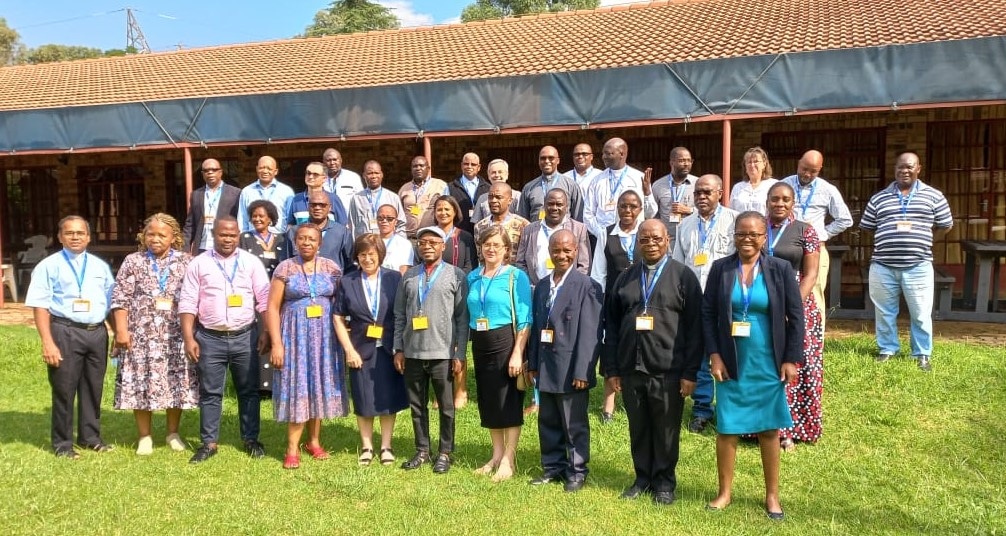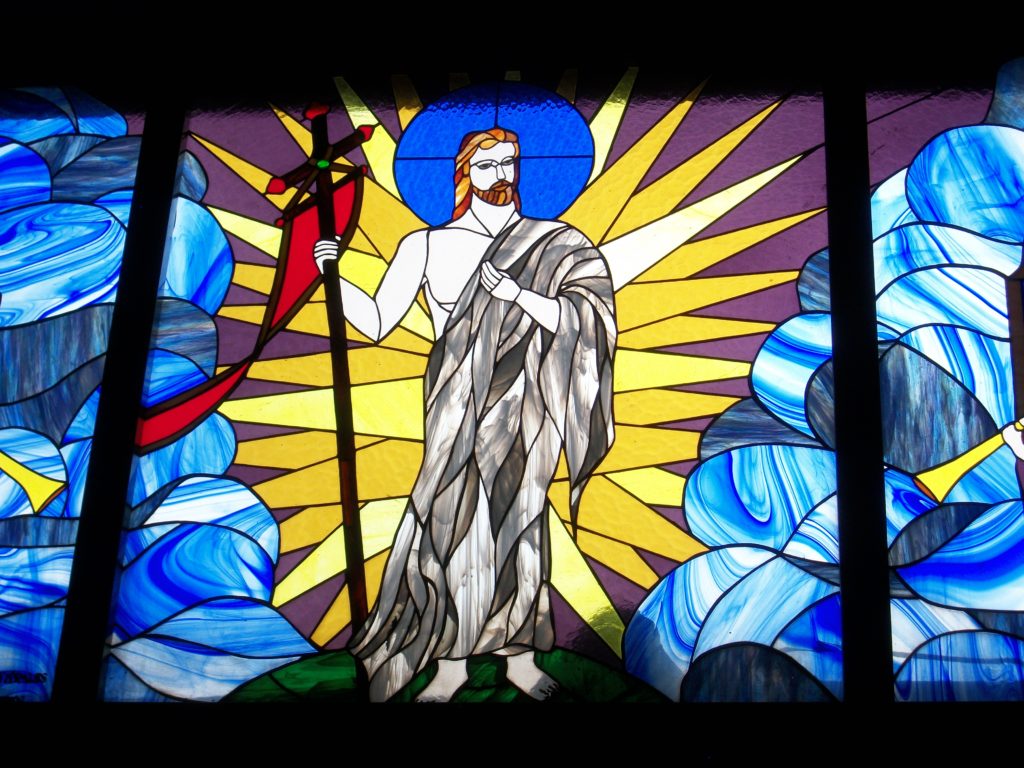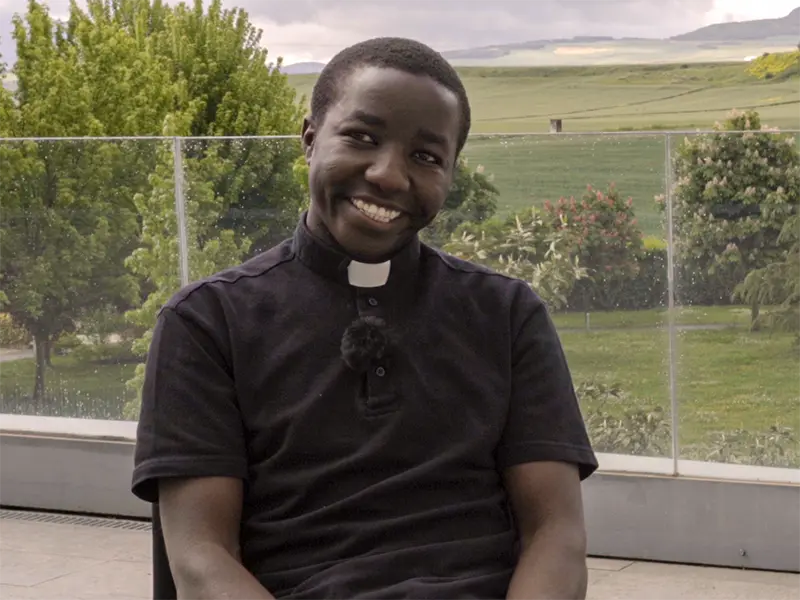SACBC Urges Service for Migrants and Refugees
Inter-Regional Meeting of the Bishops of Southern Africa

In his closing remarks of the IMBISA (Inter-Regional Meeting of the Bishops of Southern Africa) workshop on Migrants and Refugees in Pretoria Bishop Joseph Kizito, the Liaison Bishop of the Migrants and Refugees Office of the SACBC, challenged the participants to give life to the structures the Church has on paper regarding the service to Migrants and Refugees in the IMBISA region. This was a two-day workshop from the 22nd to 23rd February 2022 based on Pope Francis’ Fratelli Tutti and the necessary service to migrants and refugees.
The workshop’s aim was to promote the pastoral care of migrants, refugees, and other displaced persons in the IMBISA Region, advocating for fraternal openness that allows the Church in the region to acknowledge, appreciate and love every human being. Bishop Kizito said he has learned a lot from the workshop and can see that are a lot of structures, but the challenge is to turn these structures into life. He also made an observation on available documents on migrants and refugees, “There are a lot of documents, go and use them. Read them, but also share those books with our colleagues and other organizations. The material is there, well researched, well written easy to read, and user friendly.”
The Bishop also highlighted the importance of networking and was happy to see it becoming a reality in the IMBISA region but encouraged that more needs to be done. He promised that the SACBC will be working a lot in this area of migrants and refugees. Bishop Kizito also expressed his appreciation after learning that the Holy Father takes a very personal interest in the Migrants and Refugees Section of the Vatican that every two weeks he personally meets the section to get reports directly from them.
On the first day of the workshop, the focus was on Fratelli Tutti on migrants and refugees, migration patterns in Southern Africa today, and challenges faced by migrants and refugees. On the second day, attention was turned to advocacy in a form of engaging national and international legislation. Also, there was a session on pastoral orientation on caring for migrants, refugees, and internally displaced persons. The afternoon was reserved for a sharing by episcopal conferences on ministry to migrants and refugees focusing on their successes and challenges.
It seems to have been this session of sharing and testimonies that was more enlightening to the participants as accounts of real situations out there were shared. Although some participants, like those from Namibia, did mention having support from the government the majority from other countries on the main lamented the corruption and lack of support and real commitment from their governments. The groups shared about the work and progress they have done so far in their different countries. In Angola, among many things, they have been offering workshops and formation on migrants and refugees. This included formation programs for leaders of migrants and refugees, health issues, basic skills. They offered business starter packs to migrants and refugees to enable them to be self-reliant. A mention was also made on a work in collaboration with the ministry of justice on prevention of human trafficking. In Angola the biggest challenges are hunger and lack of documents for migrants and refugees.
In Mozambique the Migrants and Refugees section has been busy implementing its action plan, offering free legal services and material needs to migrants and refugees. They are also busy lobbying for migrants and refugee children to be included in the education system of the country. As many people have lost their documents in catastrophes, especially the internally displaced people, the church is helping with the obtaining of the new documents. In Mozambique, they are facing a challenge of violence, security, lack of respect for human rights, and cases of physical and sexual abuse, including the exploitation of labor. Added to that is the slow process for granting the status of refugees to those who need it. There were also reports from Lesotho, Namibia, Zimbabwe, and SACBC representing Eswatini, Botswana, and South Africa.
Earlier in the day Dr. Mario Almeida, the Migrants and Refugees Regional Coordinator for Africa had assured the participants that Pope Francis takes seriously this matter of migrants and refugees that every two weeks needs accounts personally. Almeida reaffirmed the commitment of the migrants and refugees section on its mission of accompanying the local churches in their pastoral response to people on the move in countries of origin, transit, and arrival and return. He mentioned the unfortunate serious resistance to help the migrants on the part of the civil society, and sometimes worse in the church as there are some bishops who don’t want to hear much about migrants and refugees. Almeida noted that although migration is seen as a negative thing it is supposed to be seen as a positive for in any case people have always been on the move from time immemorial and in many ways migration can be an enrichment to the welcoming country. He touched on the importance of the four elements that were mentioned by Pope Francis regarding the treatment of migrants and refugees; welcome, protect, promote, and integrate. Almeida also mentions the seriousness of the problem of human trafficking as a new form of slavery and that a lot of money is made from this vile practice, a matter too that is very dear to the Pope.
Also present at the workshop was Bishop Jose Ponce de Leon of Manzini, a member of the IMBISA Standing Committee, who asserted the importance of telling and retelling the story of the plight of migrants and refugees because repeating these stories and messages will make many people know and be aware of what is happening. He mentioned the importance of spreading the messages from the Holy Father and the migrants and refugees’ section.
Related

Reflection by Bishop Enrique Díaz: Alleluia, alleluia
Enrique Díaz
20 April, 2025
5 min

Christ is Risen! Alleluia! Commentary by Fr. Jorge Miró
Jorge Miró
20 April, 2025
3 min

Easter: Mystery of Freedom
Carlos J. Gallardo
20 April, 2025
5 min

“Being Catholic in Tanzania is a source of pride”
Fundación CARF
16 April, 2025
6 min
 (EN)
(EN)
 (ES)
(ES)
 (IT)
(IT)

